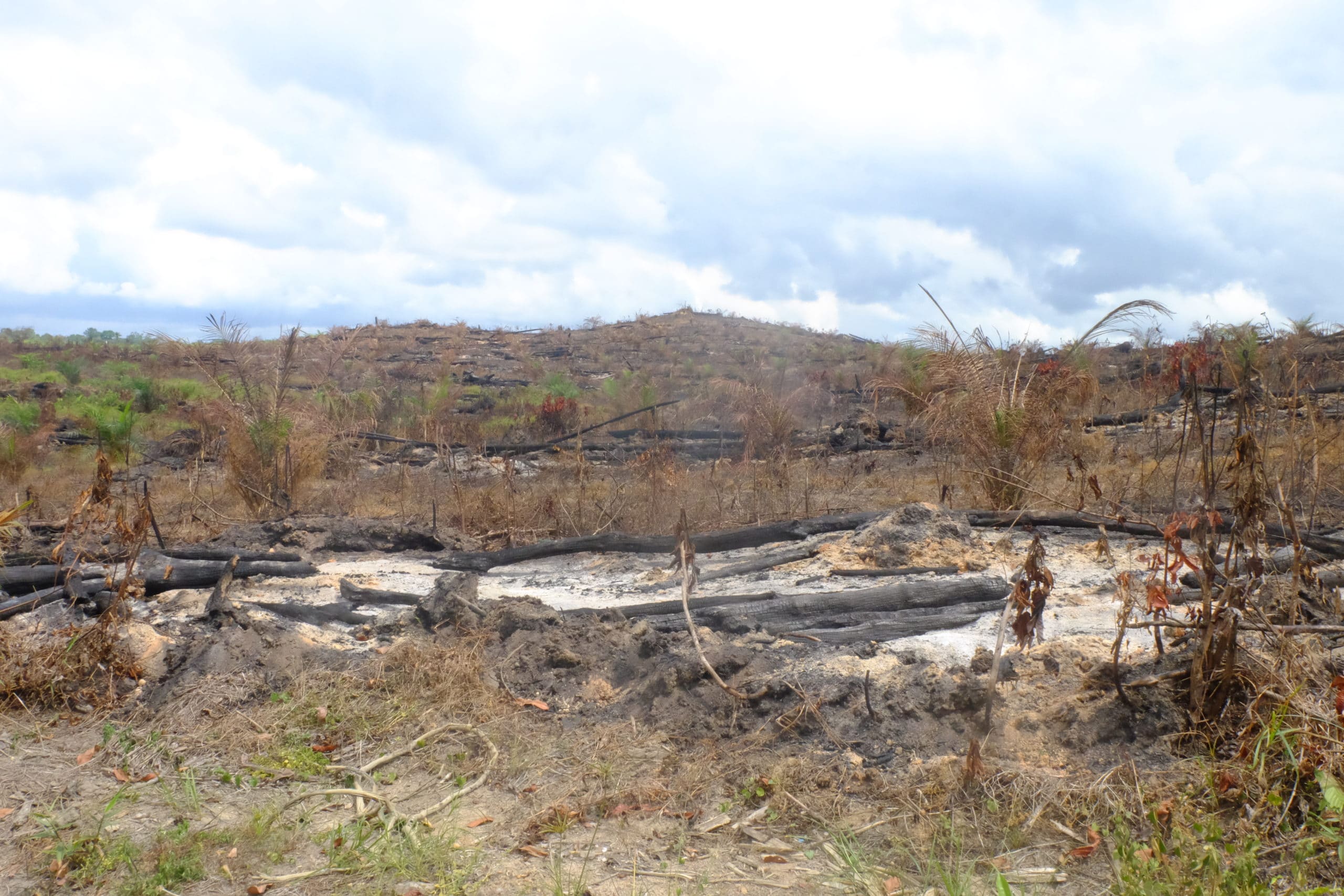- Blog
- Forests
- Land Grabbing, Forests & Finance
- Is S&P Dow Jones greenwashing conflict palm oil?
Is S&P Dow Jones greenwashing conflict palm oil?
by Gaurav Madan, senior forests & land campaigner

Donate Now!
Your contribution will benefit Friends of the Earth.
Stay Informed
Thanks for your interest in Friends of the Earth. You can find information about us and get in touch the following ways:
Originally posted on Mongabay.
- In its annual listing of sustainable companies released last month, S&P Dow Jones Indices included Golden Agri-Resources, a palm oil company financing operations in Liberia.
- However, reports and complaints about the company’s practices are leading some conservation and human rights organizations to question whether Golden Agri-Resources is operating in a sustainable manner. Accusations include widespread deforestation in Indonesia and Liberia, land grabbing, and violations of international sustainability principles.
- The company’s Liberian arm, Golden Veroleum Liberia, is no longer a member of the Roundtable on Sustainable Palm Oil, after the certification body found ongoing violations including the use of coercion and intimidation to pressure villagers to sign agreements with the company, destruction of community sacred sites, and continued development on disputed lands.
- This post is a commentary. The views expressed are those of the author, not necessarily Mongabay.
Last month, S&P Dow Jones Indices, one of the world’s leading financial market index providers, released its annual listing of sustainable companies. The Dow Jones Sustainability Indices (DJSI) considers its yearly process to be the “gold standard for corporate sustainability.” However, despite touting an increasingly robust methodology, the decision to retain palm oil company Golden Agri-Resources (GAR) on the 2018 Asia/Pacific Sustainability Index indicates there are gaping holes in the DJSI’s approach.
According to reports and official complaints, GAR’s operations in Indonesia and Liberia are driving widespread deforestation, human rights violations and theft of communities’ traditional lands – activities that can hardly be seen as sustainable as per the DJSI’s criteria. Indeed, the expansion of industrial palm oil alongside other agricultural commodities like soy, cattle and timber is a primary driver of deforestation globally, as well as the second leading cause of greenhouse gas emissions after fossil fuels.
In 2017, Asian palm oil producer GAR — a subsidiary of the Indonesian agribusiness giant Sinar Mas — became the first palm oil company to be listed on the DJSI Asia/Pacific Index. The Singapore-listed company has faced consistent and credible allegations of land grabbing, environmental destruction and violations of international sustainability principles documented through complaints filed with Roundtable on Sustainable Palm Oil (RSPO) — the certification body for the industry. In 2018 alone, GAR and its Liberian palm oil venture Golden Veroleum Liberia (GVL) were found destroying globally significant rainforests, acquiring communities’ lands without their consent, and flouting the decisions of the RSPO.

In February 2018, the RSPO Complaints Panel affirmed ongoing violations by Golden Veroleum Liberia (GVL), including the use of coercion and intimidation to pressure villagers to sign agreements with the company, destruction of community sacred sites, and continued development on disputed lands. When GVL lost its appeal of the RSPO decision, the company pulled out of the sustainability body, raising serious concerns from civil society about its commitment to producing conflict-free palm oil.
In a recent Financial Times article, the DJSI and Robeco SAM, the firm that assesses companies for inclusion in the DJSI, claim they have been in “constructive dialogue with GAR on several controversial topics since 2011.” However, since 2011, these palm oil companies have been responsible for consistent environmental and human rights abuses. In 2015, there was a riot on GVL’s plantation that was met with armed repression. GVL has steadily cleared hundreds of hectares of ecologically-fragile forests, and earlier this year, the RSPO confirmed GVL’s ongoing sustainability violations leading to the company leaving the industry certification body.
Despite claims of constructive engagement, the reality surrounding GAR and GVL’s operations only seems to be deteriorating. A July 2018 report by NGO Friends of the Earth presented evidence that the palm oil companies not only violated their own sustainability policies and those of their customers, but GVL also engaged in ongoing destruction of Liberia’s globally-significant, high-density forests, including several hundred hectares of critical chimpanzee habitat.

In August 2018, five complaints were filed with the RSPO regarding GAR’s operations in Indonesia and Liberia. One complaint detailed how GAR establishes shadow companies through disguised ownership that are actively clearing lands and forests in contravention of company sustainability policies.
None of this should be news to the DJSI or RobecoSAM. Their process, which includes a Media and Stakeholder Analysis, involves monitoring media coverage and publicly available research on companies’ management of environmental, economic and social risks. Over the past seven months, Friends of the Earth has provided the DJSI Committee and RobecoSAM with in-depth data regarding GAR’s sustainability failings, including violations of the DJSI’s own listing criteria.
While governments and investors are grappling with climate chaos, the Intergovernmental Panel on Climate Change (IPCC) recognizes the crucial role that halting deforestation has in mitigating climate change and limiting global warming to 1.5 degrees. At the same time, the DJSI seems to be sending a signal that threatening forest communities, the environment, and critical biodiversity is, in business terms, sustainable. The DJSI Committee’s decision to retain GAR in its sustainability portfolio raises disturbing questions about whether it’s serving as a tool for greenwashing destructive companies and a high-risk sector such as the palm oil industry.
The integrity of sustainable investing rests on its ability to consistently recognize the inherent risks of environmental destruction, human rights violations and land conflicts, and reflect that understanding through principled and informed decision-making. Otherwise, ethical investment providers like the DJSI are doing a disservice to their own criteria, methodology and clients.
